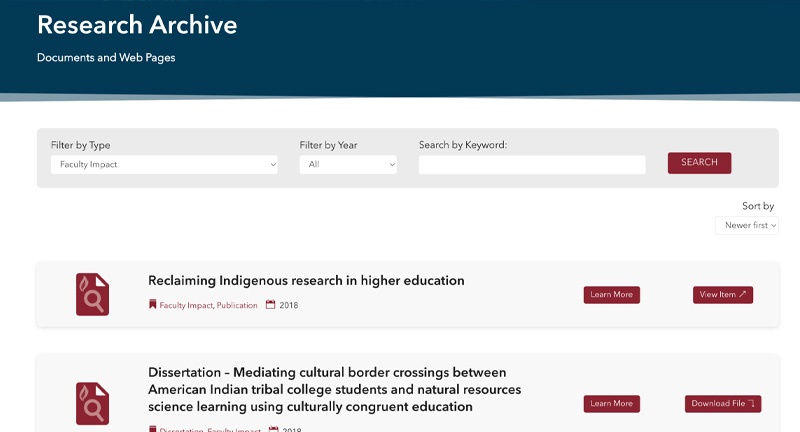Only 14% of American Indian and Alaska Native students have a college degree, less than half the rate of other groups—and one barrier to getting a higher education is often cost. Lannan Foundation of Santa Fe, New Mexico is helping to make it easier for Native students to get a college degree, thanks to a $3 million endowment it created with the American Indian College Fund.
Inside the College Fund Blogs
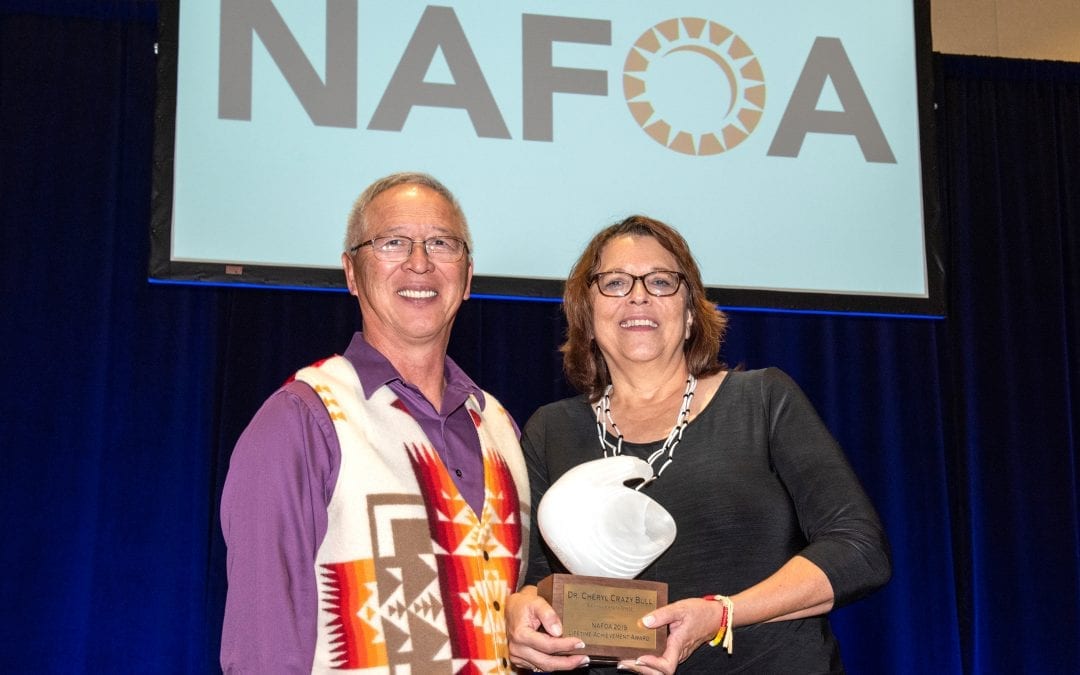
Cheryl Crazy Bull Presented with Lifetime Achievement Award by Native American Finance Officers Association
Cheryl Crazy Bull (Sicangu Lakota) President and CEO of the American Indian College Fund, was awarded a Lifetime Achievement Award on Tuesday, October 8 by the Native American Finance Officers Association (NAFOA)
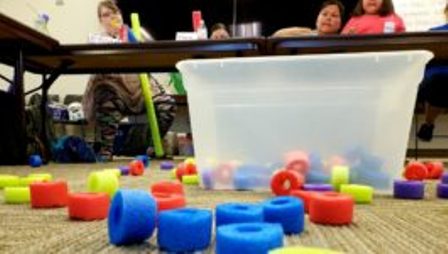
What is STEM without Roots?
When it comes to STEM, it may be the roots that hold us in the field, the classroom, and in our love for science, technology, engineering and mathematics.
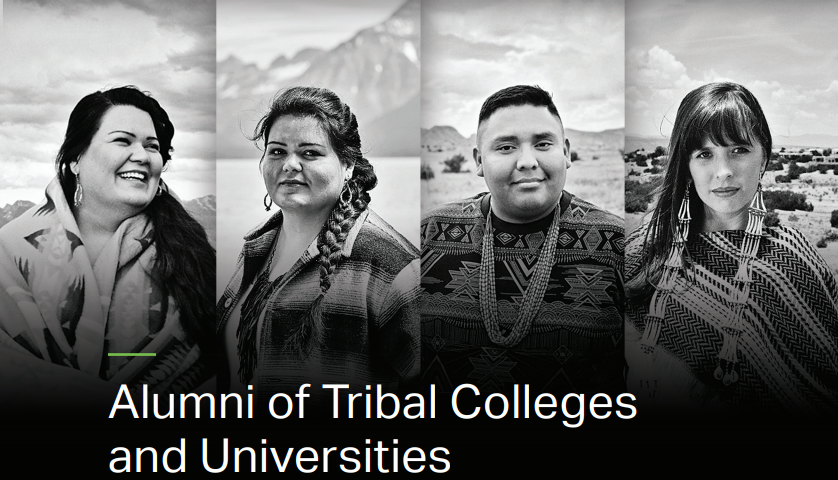
Report: Tribal Colleges Offer Unique Approach to Native Student Success
Education has been heralded as the “great equalizer,” but today only 14% of Native Americans in the United States ages 25 and older have a bachelor’s degree or higher—less than half of that of other groups.
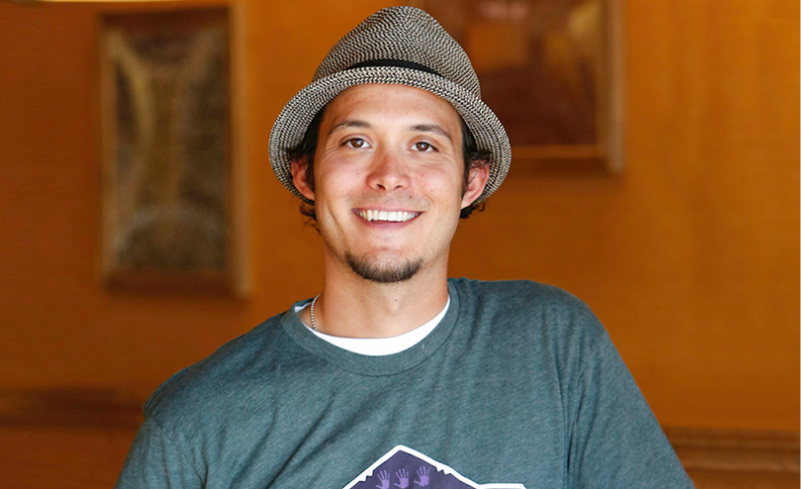
College Fund Hosts Indigenous Cooking Event with Premier Denver Chefs
Denver’s rich Native American history stretches back 13,000 years. Once the winter home of the Arapaho and a bustling trade center prior to the gold rush, today Denver is ranked as one of America’s best cities to live and is home to a burgeoning restaurant scene.
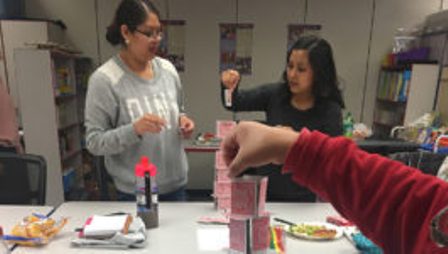
SIPI Utilizes Online Learning Communities to Enrich Teacher Training
For SIPI’s Early Childhood Education (ECE) students earning an associate degree, the curriculum provides practicum experience for students in both infant and toddler classrooms. SIPI’s Early Childhood Learning Center (ECLC) serves as both the lab school for the program and the site for student practicums.
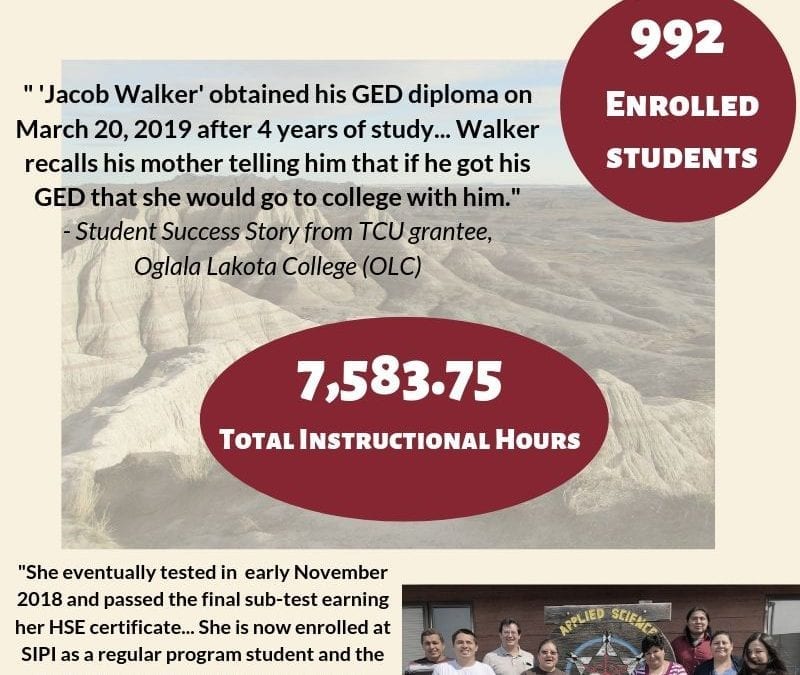
Dollar General Grantees Delve into Community for Holistic GED/HSE Certification
Tribal College and University (TCU) grantees of the Dollar General American Indian and Alaska Native Literacy and Adult Education Program have the common objectives of serving more GED/Highschool Equivalency (HSE) students than previous years and, ultimately, helping more American Indians obtain their GED/HSE certificates.
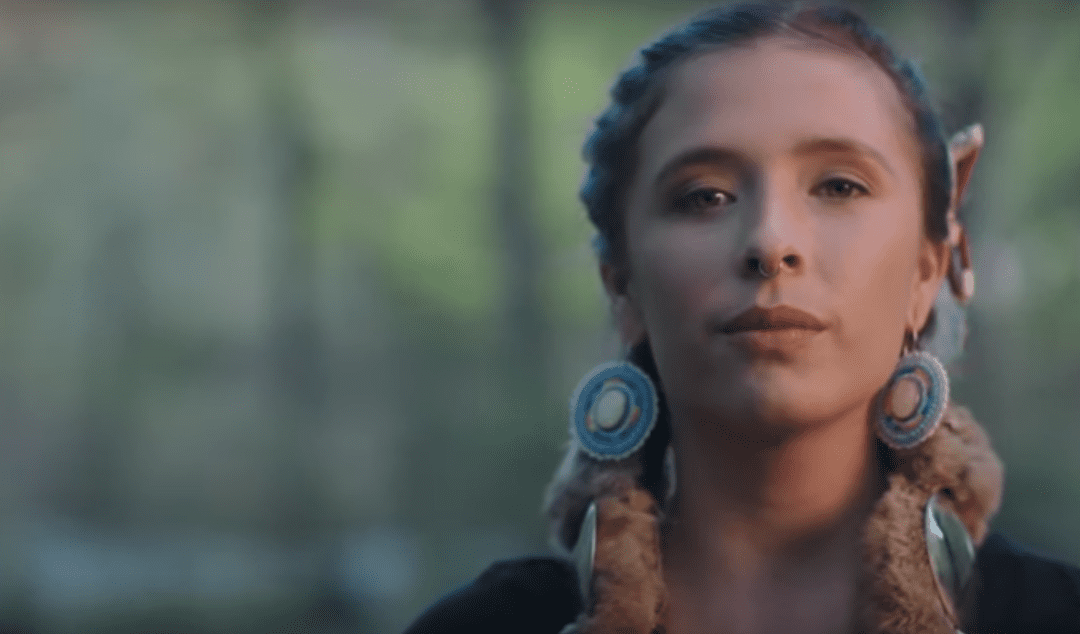
College Fund Scholar Publishes Article about How Labels Can Create Harm
Society often imposes labels on us. We embrace some labels, but many are obstacles. Justina, a College Fund scholar and student ambassador, is part of Diet Coke’s national [unlabeled] campaign. She shares with Teen Vogue how she is taking control of her narrative and speaking out against stereotypes and labels because she they are harmful.
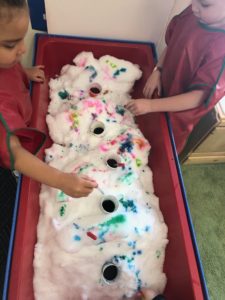
Relationships: Children Discovering STEM with the World Around Them
Children are natural scientists and learn through exploring and creating props for play within their environment. Salish Kootenai College (SKC) Early Learning Center extends its learning community from inside walls to the outdoors, allowing children to discover the changes occurring in each season and to be immersed in nature.
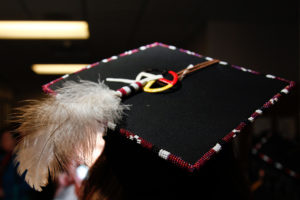
With Few Role Models, Native Americans Struggle To Access Higher Education
American Indian College Fund President Cheryl Crazy Bull is interviewed for this California Public Radio story in which reporter Adolfo Guzman-Lopez reports that of the 280,000 students enrolled at University of California campuses, only about 1,100 of them are Native Americans — only about 100 more than 20 years ago.




